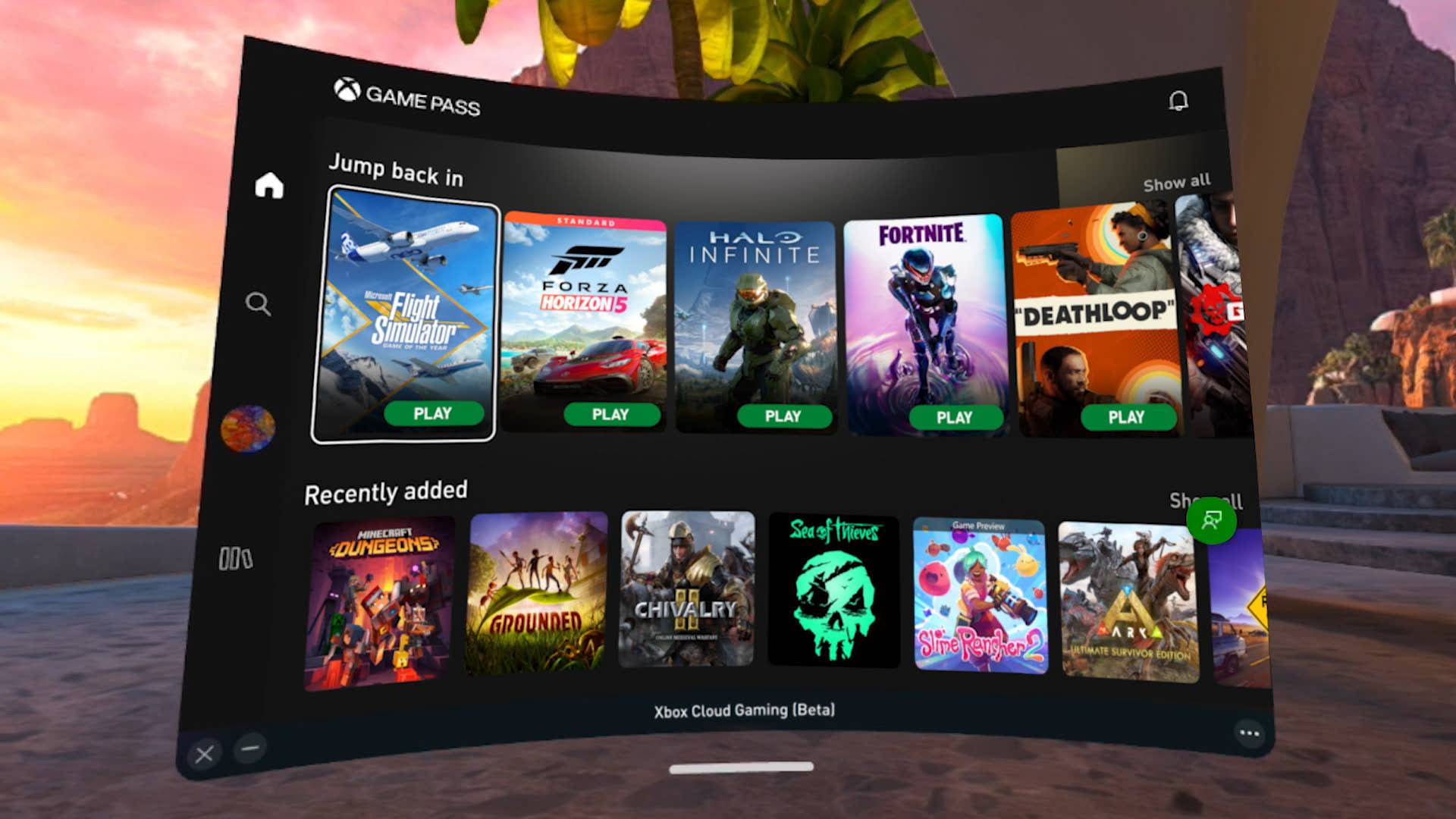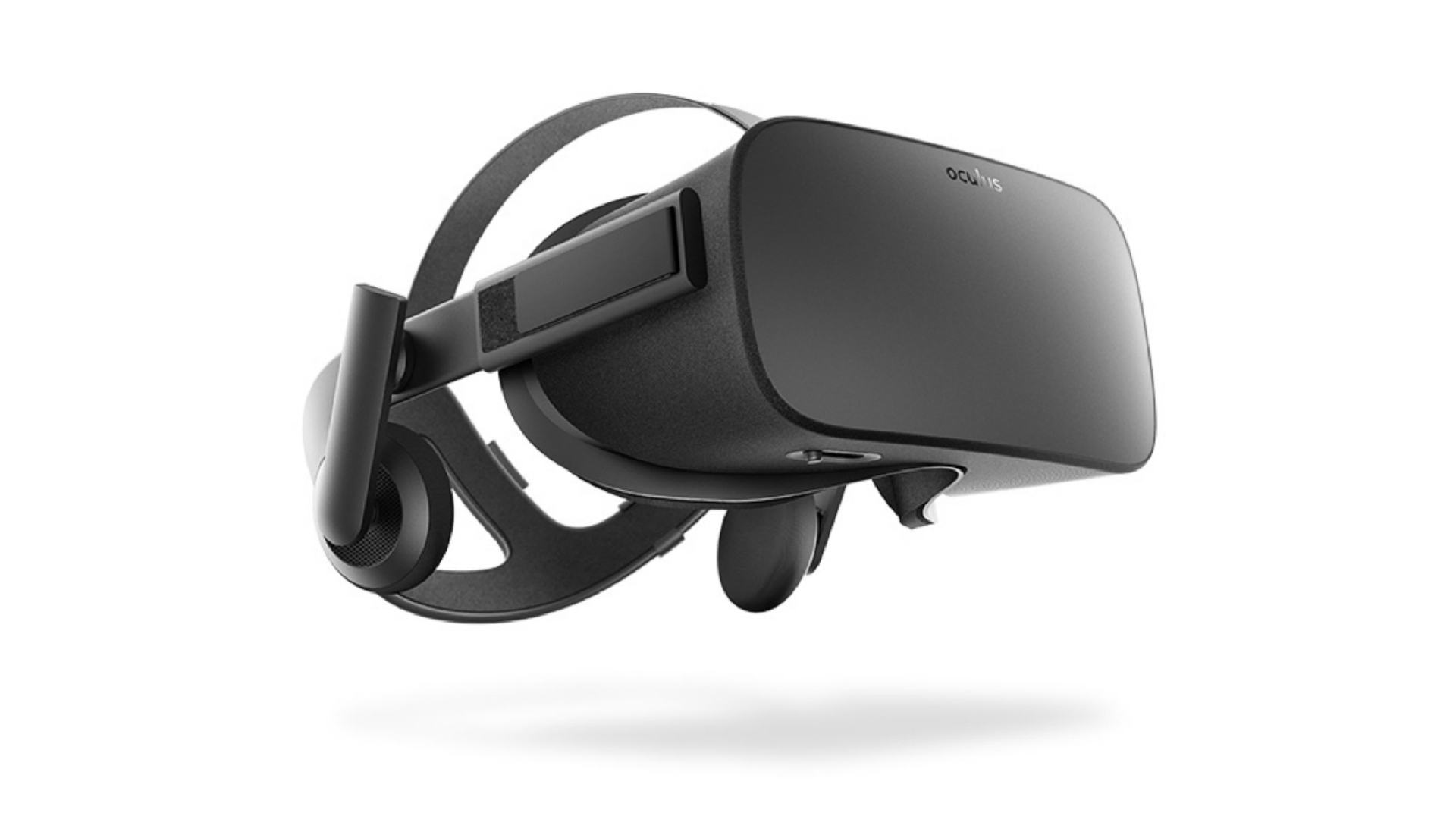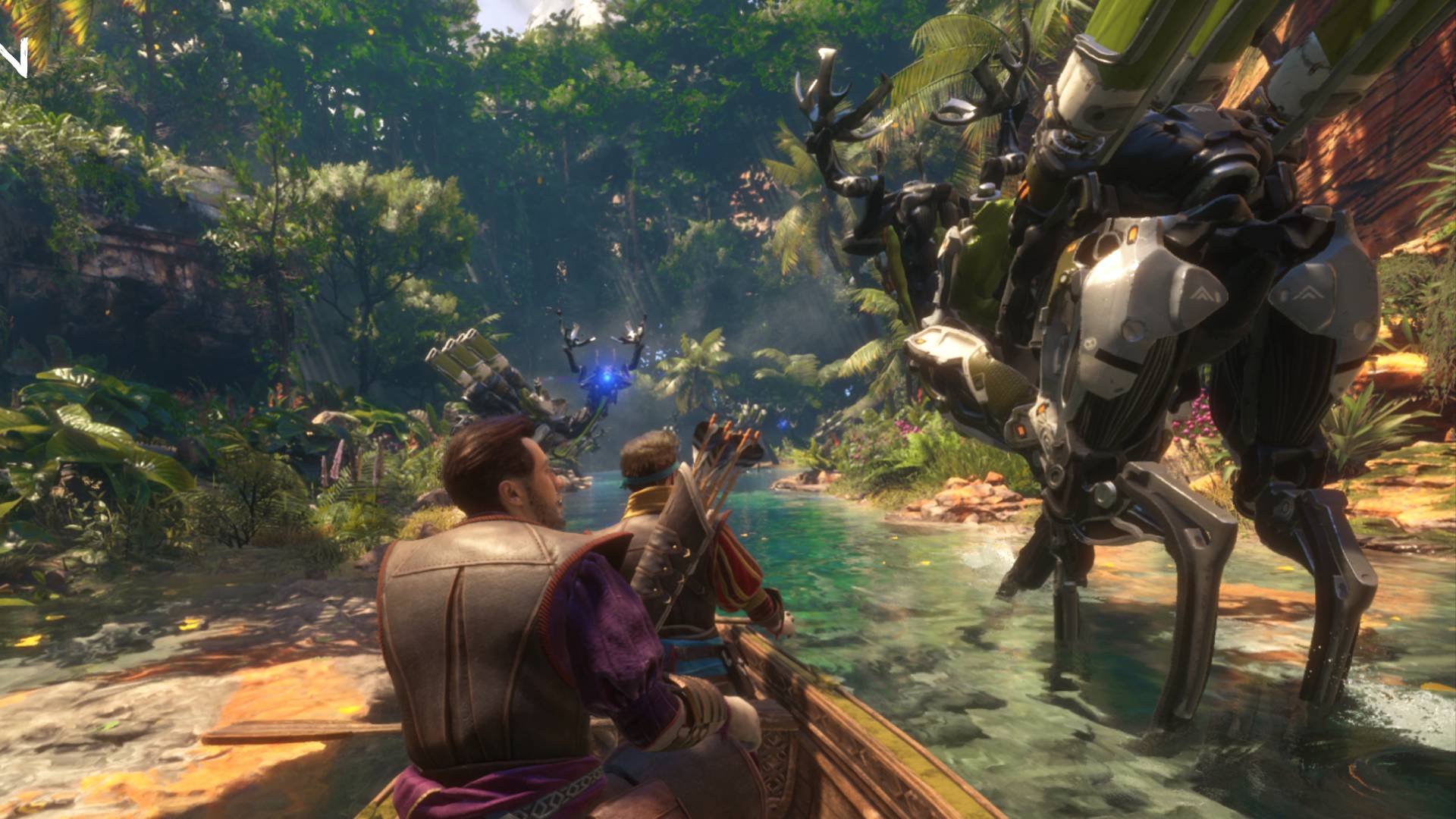Xbox Cloud Gaming on Meta Quest may beat PSVR 2 for one simple reason
Heads up

Microsoft has announced new plans for Xbox VR gaming, continuing a starkly different approach to its main rival, Sony. CEO Satya Nadella revealed that Xbox Cloud Gaming is coming to Meta Quest headsets, bringing a vast library of games to your VR headset without needing a console. And it may have Sony's PSVR 2 beat before it's even launched.
Announced during Meta’s Connect conference, Xbox Cloud Gaming will be added to the VR headset’s store, letting you stream the Xbox Game Pass Ultimate library to your Meta Quest 2. You’ll be able to connect your controller to the headset and play the games on a giant 2D screen within the headset. It’ll be like gaming in your private cinema.
Nadella didn’t say when Xbox Cloud Gaming will be rolling out for Meta Quest 2 and other VR headsets, and Meta offered no extra details in its follow-up blog post, so we may well be waiting until 2023 or beyond before we can play the likes of Halo Infinite and Forza Horizon 5 in a VR environment.
Take two

This isn’t the first time you’ve been able to play Xbox games on a VR headset; you can connect an Oculus Rift to an Xbox One and create a similar big-screen experience. However, Microsoft didn’t continue this support with the Xbox Series X|S.
While similar to its earlier efforts, there’s a significant difference to what Microsoft announced at the Connect conference. The Meta Quest 2 is built for portability. Yes, you can bump its power by connecting it to a PC, but it also supports gaming on the go. It’s easy to pack it into a small carry case and take it on holiday or to a friend’s house. Xbox Cloud Gaming taps into that mentality – you don’t need to take a console with you, and you don’t need a TV, or a load of cables. Connect the headset to the WiFi and your Xbox Controller to the headset, and away you go with a stack of games.
Throughout the growth of Xbox Game Pass, Microsoft talked about getting its games onto as many screens as possible. Not just ones connected to an Xbox console. What it’s doing with the Xbox Cloud Gaming on Meta Quest is a natural extension.
One size fits all

It’s also interesting how Microsoft’s approach to VR gaming diverges from Sony’s. With the PSVR 2, Sony’s doubling down on bespoke VR gaming. It’s making its own hardware and first-party PSVR 2 games, and pushing what is possible with VR. I played Horizon: Call of the Mountain, and it was unnerving how realistic its world felt. Microsoft isn’t engaging with that at all, simply seeing VR as a new screen for its games to be played on.
Sign up for breaking news, reviews, opinion, top tech deals, and more.
The disadvantages for Sony are how much developing all that hardware and software costs, and that it can only sell its games to people who own its headset. Its market is only as large as the number of headsets it sells. However, the people who buy the PSVR and PSVR 2 are invested and looking to buy experiences for the tech.
For Microsoft, the costs are much lower, it’s already made the games and is simply making them available on another device. It simply grows its potential audience further by becoming available in a new ecosystem. But, from a player’s perspective, it doesn’t offer a gaming experience you can’t get elsewhere – there is no other way to play Horizon: Call of the Mountain other than on a PSVR 2 headset, while you can play Halo Infinite in your browser on a laptop.
I know which I would prefer to play, but I don’t know which I will end up playing more. Xbox Cloud Gaming on a VR headset may win out from sheer accessibility.

Julian's been writing about video games for more than a decade. In that time, he's always been drawn to the strange intersections between gaming and the real world, like when he interviewed a NASA scientist who had become a Space Pope in EVE Online, or when he traveled to Ukraine to interview game developers involved in the 2014 revolution, or that time he tore his trousers while playing Just Dance with a developer.